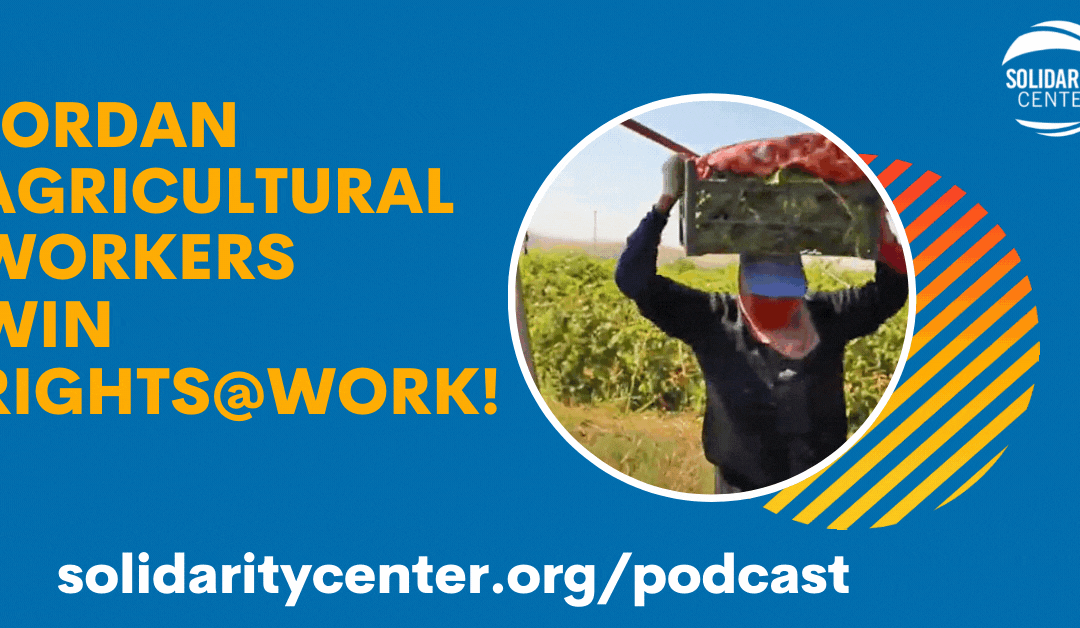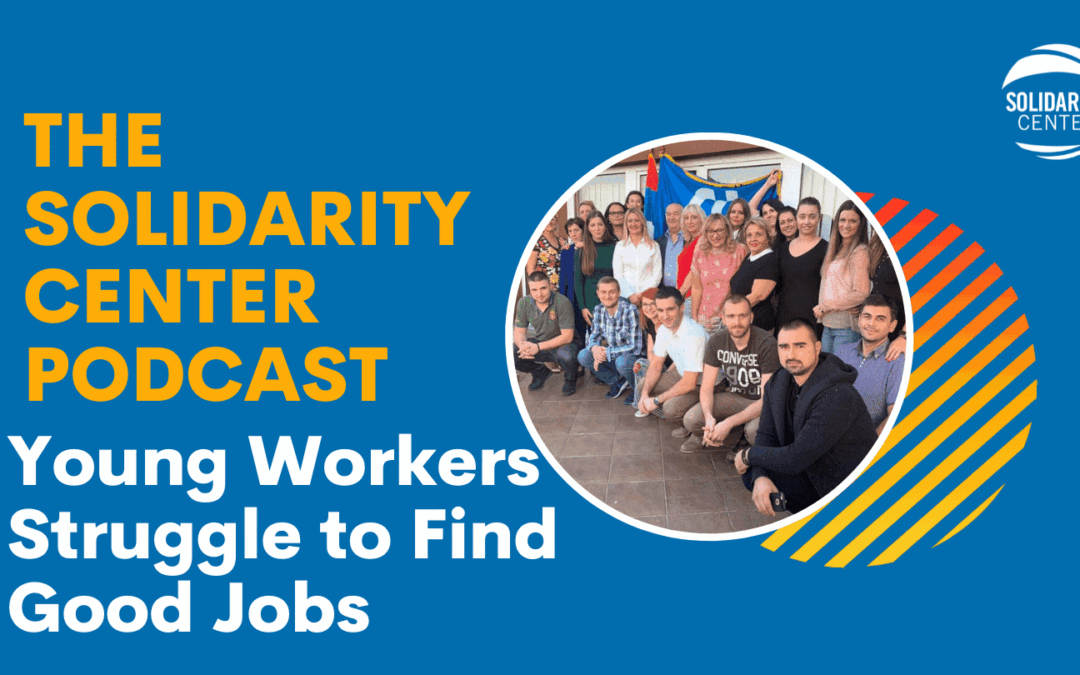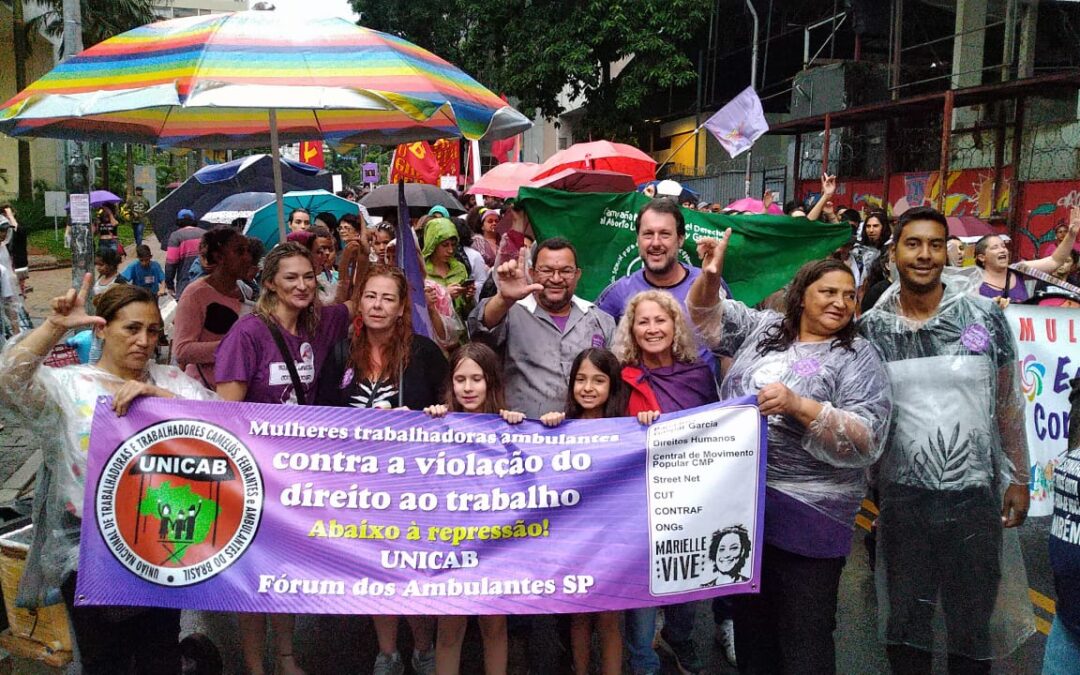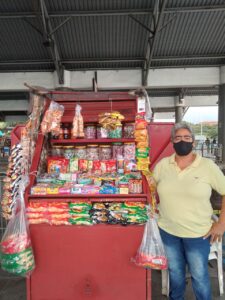
Oct 20, 2021
Some of the most essential workers are also among the most overlooked—the women and men who plant, harvest and transport our fruits and vegetables, ensuring our tables are full every day, and especially during the COVID-19 pandemic.
Worldwide, they also are among workers with the fewest legal protections and rights on the job. On the latest Solidarity Center Podcast, Hamada Abu Nijmeh describes how agricultural workers in Jordan collectively campaigned for—and won—a landmark law that will bring them safer jobs, overtime pay, 14 days annual paid leave and 14 days paid sick leave.
The workers, the majority of whom are women, also won 10 weeks paid maternity leave. Significantly, the legislation also covers migrant agricultural workers, who frequently are not protected by countries’ labor laws.
Abu Nijmeh is director of the Jordan-based Workers’ House for Studies, and with the Agricultural Workers Union, led the campaign for this first-ever legislation.
“So I can proudly say that it is through the efforts of many that we have been able to achieve this landmark achievement,” says Abu Nijmeh. “I can say without a doubt that this is a historic achievement because since Jordan was founded, agricultural workers have not been included in the labor law until now.”
Agricultural workers won this victory despite the legally limited ability of all workers to form unions in Jordan, says Abu Nijmeh. He tells Solidarity Center Podcast host Shawna Bader-Blau that the union’s next steps include winning the fundamental right for workers to freely form unions and bargain collectively.
“The trade union of agricultural workers tried to register [with the government] and, of course, they have been denied and they took it to court,” he says. “The best way to protect the agriculture sector and any future trade union in the agricultural sector is to fix the problem with the entire system.”
Listen to This & All Solidarity Center Episodes
Listen to this and all Solidarity Center episodes here or at iTunes, Spotify, Amazon, Stitcher, Castbox or wherever you subscribe to your podcasts.
The Solidarity Center Podcast, “Billions of Us, One Just Future,” highlights conversations with workers (and other smart people) worldwide shaping the workplace for the better.
Check out recent episodes of The Solidarity Center Podcast.

Oct 13, 2021
Around the world, young people with few job options are forced to take whatever work they can find, no matter how low the pay or insecure the work. Many sign on with platform-based jobs to get by. Others leave their country with the hope of finding decent, secure work elsewhere, looking for a chance to fairly compete on a level playing field.
The latest Solidarity Center Podcast takes a look at what’s happening in Serbia, where one in four young people are not employed and not in school, and how unions there are meeting the challenges.
“The number one issue for all countries in the region and all young people is decent employment and the potential to find a job for each person in a way that is transparent and efficient and without corruption,” says Bojana Bijelovic Bosanac, a political scientist and expert adviser in the International Department at Confederation of Autonomous Trade Unions of Serbia (CATUS).
Bosanac tells Solidarity Center Executive Director and podcast host Shawna Bader-Blau about a union-lead survey among young workers in the Balkan region during the pandemic in which many reported being unpaid for their platform work as programmers, customer service reps, telecenter workers and delivery drivers, with nowhere to turn for support. Making the union their home is a key goal for CATUS and unions across Serbia.
“When we talk to young people, we want them to know that they are part of the union. They are the future of the union. We are inviting them always to approach, to come, to participate and to be leaders of the union.”
The Solidarity Podcast Available Wherever You Get Podcasts
Listen to this and all Solidarity Center episodes here or at iTunes, Spotify, Amazon, Stitcher, Castbox or wherever you subscribe to your podcasts.
The Solidarity Center Podcast, “Billions of Us, One Just Future,” highlights conversations with workers (and other smart people) worldwide shaping the workplace for the better.
Check out recent episodes of The Solidarity Center Podcast.
This podcast was made possible by the Ford Foundation and the generous support of the American people through the U.S. Agency for International Development (USAID) under Cooperative Agreement No.AID-OAA-L-16-00001 and the opinions expressed herein are those of the participant(s) and do not necessarily reflect the views of USAID/USG.

Oct 4, 2021
Millions of street vendors worldwide lost their livelihoods nearly overnight during the pandemic, unable to sell in open markets during lockdowns or unwilling to risk their health to do so.

Maria do Carmo, founder of United Camelôs Movement street vendor association in Sao Paulo, spoke at the Essential Worker Summit.
But street vendors in Brazil, through the National Union of Street Vendors Workers (UNICAB), achieved basic emergency income to ensure they could survive. UNICAB went on to collect sufficient signatures from members of the Brazil National Congress to create a Parliamentary Front to defend informal traders’ rights, marking the first time they will be represented at the national level.
“We had many successes this year during the pandemic,” says Maria do Carmo, a street vendor and leader of the United Camelôs Movement (MUCA) in Rio de Janeiro. MUCA, organized by do Carmo in 2003, has further built its collective strength by joining UNICAB, a countrywide association formed in 2014.
Do Carmo says she is most proud of MUCA’s victory in convincing city officials to not charge customary fees during the pandemic because vendors sold so little. “We did it with a lot of protest—going to the town hall and participating in public debate.
“A good success is a collective one.”
Building Success Through Collective Action

Marli Almeida is among many street vendors in Brazil seeking basic rights on the job. Credit: UNICAB
In September, informal economy workers joined in a first-of-its-kind worldwide gathering to outline a vision for a just economic recovery that ensures protections for workers and advances worker rights. Over three days, the Essential For Recovery summit brought together well-known actors, global union leaders and policymakers who talked with street vendors, domestic workers, farm workers and others who shared their experiences and demanded a response that urgently and effectively protects the most marginalized.
Many Essential For Recovery participants pointed to workers joining together in unions and associations as one of the most effective means for achieving rights. In Rio, do Carmo and other street vendors further showed the power of collective action during the pandemic when they successfully lobbied the municipal government to stop police from confiscating vendors’ merchandise as means of harassment.
“After MUCA joined UNICAB, we saw we had more presence, we are more respected in the state [of Rio] because of strength of UNICAB,” she says. Through the organization, street vendors connect with each other across the country, learn about available resources and join together to advocate for their rights at the local and national levels. (Check out UNICAB’s podcast with street vendors, in Portuguese).
Street Vendors Part of Growing Informal Economy

Edivaldo, a member of the Sintraci Informal traders trade union of Recife Pernambuco, protests violence against street vendors. Credit: UNICAB
Street vendors are part of the global economy’s vast and growing informal workforce—61 percent of all workers are in the informal economy, where they rarely have paid sick leave, safe jobs or access to affordable health care. Street violence—especially from police and other local officials—is the biggest problem they face in Brazil and worldwide, says Maira Villas-Bôas Vannuchi, organizer of StreetNet International for the Americas. Street vendors, the majority of whom are women in many countries, are especially vulnerable, exposed to extreme heat or cold, often with no access to toilets or clean water.
“Many women, single mothers, had to go work in the streets because that was the option they had,” says do Carmo.
Two weeks after giving birth, Maria do Carmo returned to the streets of downtown Rio, where she sells women’s clothes. The police, who street vendors there say regularly abuse them verbally and physically, assaulted do Carmo.
“They beat me up pretty hard,” she says. “I was injured and had to take leave from work.”
It took do Carmo a month before she was healed sufficiently to return to her job, but when she did, she was determined to fight for the rights of street vendors to make a living. Do Carmo went on to organize street vendors across the city in MUCA.
“Street vendors are workers without rights,” says Vannuchi. “They work every day, they contribute to the economy of the country, but they are not recognized as workers.”
Respect, Recognition
Connecting with and organizing street vendors who work on different days and at varied hours spread across cities and along roads was challenging—and involved many arrests as local officials sought to disrupt their efforts to gain political and social rights, with police targeting leaders like do Carmo. MUCA and UNICAB are now part of StreetNet International, a global alliance of street vendors launched in South Africa in 2002.
Do Carmo ran for office in Rio and although she did not win the election, she says the visibility of her campaign and the efforts of other vendors to win office brings their issues to the attention of the public and lawmakers. “Today we have respect from City Hall,” she says.
A single mother, do Carmo has supported four children with her work and plans to remain a street vendor, despite her organizational involvement and efforts to seek elective office. She emphasizes that street vending is a job many want and need to do—but in decent conditions and with respect.
“A good future will be a future when street vendors—all of them—have confidence in the value of their work, when society considers what we do is work and when our work is appreciated by society, and we are not marginalized as we are now.”
Sep 21, 2021
“They are targeting the most senior figure in the trade union movement,” said David Welsh for the Solidarity Center, an international workers’ rights group that is advocating for Sawit and other union leaders.
Sep 7, 2021
Some 70 Bolt food delivery drivers in Ukraine are waging a digital strike after their wages were reduced by 50 percent, a move that built on the drivers’ discontent with lack of health coverage and cutbacks in bonus payments, a growing global phenomenon. The platform workers are turning off their apps each day at 2 p.m., making it difficult for the company to fulfill evening food orders.
“Transportation costs are the same, risks are the same, and money is half as much. It’s outrageous!” says Artem, a Bolt courier. Like many striking couriers, his backpack features a sticker supporting the strike.
Further cutting into drivers’ wages, he says, is the need to pay for constant bike or scooter repairs.
“For seven days of eight to ten hours of work, a courier covers more than 1,000 kilometers (622 miles) amid city traffic. Every day, you face potholes on the road, there is a constant need of repair, replacing some parts,” he says. “Income no longer covers risks.”
Bolt Founder a Billionaire, Workers Struggle for Pay
Although Bolt is a familiar brand in the United States for its green ride-sharing scooters scattered across urban areas, elsewhere in the world, the company rivals Uber as a delivery service, with 75 million customers in Africa and Europe, especially eastern Europe. In Ukraine, Bolt has 3.5 million customers served by fewer than 100 delivery drivers.
The company is valued at more than $2 billion, according to its Estonian founder Markus Willig, and raised $20 million in funding from the World Bank’s International Finance Corporation this year. With total fundraising at $596 million, the company seeks to expand further into Africa and plans to add markets in Latin America and Asia Pacific through franchising agreements.
Yet, even as Willig, 27, has become the third richest person in Estonia through Bolt profits, couriers who daily face dangerous conditions receive no income when they are injured and cannot work.
“You constantly hear about couriers getting into an accident, receiving medical treatment, having surgery,” says Artem. “If you suffer yourself, there must be a certain ‘cushion’ for you not to starve at least for the duration of treatment.”
Bolt workers in Ukraine are calling for a return to the previous bonus and payment structure, and pay for waiting at restaurants for orders. They also want health and life insurance and say the company should seek legislative measures to ensure scooters are registered.
Platform Workers Join Together to Demand Rights
Well before the COVID-19 pandemic boosted home delivery services, the demand for couriers and other essential workers was increasing around the world. But because they are classified as “independent contractors,” platform workers are ineligible for the same benefits as workers in the formal economy, and typically are not covered by a country’s labor laws.
Like Bolt workers in Ukraine, couriers from Nigeria to Colombia are joining together to demand their fundamental rights to decent work—living wages, social protections like health care, and measures to improve job safety.
Workers at Bolt’s Ukraine rival, the Spanish-owned Glovo, pushed for an increase in wages and paid insurance, revealing brutal working conditions in the process. Across Ukraine, unions are engaged in creative campaigns to reach gig economy workers, a campaign worker rights attorney George Sandul discusses in depth on The Solidarity Center Podcast.
In Colombia, Rappi platform delivery workers last year formed the Union of Platform Workers (UNIDAPP), to counter fluctuating pay rates for individual delivery jobs, unexplained fines levied by the company, and the arbitrary barring of workers from the platform to accept jobs.
Bolt workers in other countries are taking action as well. Earlier this year, the Independent Workers’ Union of Great Britain protested lack of safety for drivers following the murder of Bolt driver Gabriel Bringye. Research published by Oxford University in March found that Bolt and Amazon had the worst working conditions for gig economy workers in the UK.
In Tbilisi, Georgia, couriers at Bolt went on strike in March to protest lowered wages and what they say is a manipulated bonus system and unwarranted layoffs. Georgia couriers at Glovo also protested this past spring over lack of medical coverage for work-related injuries and changes to the app-based algorithm making it more difficult to get orders..
Bolt drivers in Lagos, Nigeria, part of the Professional E-hailing Drivers and Private Owners Association, went on strike in April to protest poor working conditions and pay. Bolt recently was forced to increase fares in Kenya after drivers in Nairobi threatened to strike over high fuel prices.
As Artem says, “We have to remind them that in a food delivery company, couriers are the ones who actually deliver, and without them the company does not exist.”






